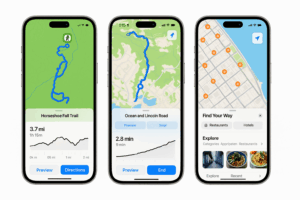Blockchain Beyond Cryptocurrency: Advancements in Security and Transparency

Blockchain technology, initially popularized through cryptocurrencies like Bitcoin, has evolved to become a transformative force across a wide range of industries. Beyond its foundational role in digital currencies, blockchain’s inherent features—security, transparency, and decentralization—make it a powerful tool for improving systems and operations. This article provides a deep dive into how blockchain technology is shaping diverse sectors, from digital identity protection and cybersecurity to supply chain management, governance, and beyond.
Introduction
Blockchain is often seen as the backbone of cryptocurrencies, but its potential far exceeds this application. As a decentralized, distributed ledger technology, blockchain offers a way to record transactions securely across multiple computers without the need for a central authority. Each block in the chain contains a record of transactions, and once added, the data is immutable and transparent. These characteristics are driving the widespread adoption of blockchain across various industries, offering new solutions to longstanding challenges such as data security, fraud prevention, and efficiency.
1. Blockchain in Digital Identity Protection
One of the most promising applications of blockchain technology is in the realm of digital identity management. The increasing digitization of services, combined with rising concerns about privacy and data breaches, has made identity theft and fraud significant issues. Blockchain technology can provide a secure, decentralized solution to identity management.
How Blockchain Enhances Digital Identity Security
Traditional identity systems rely on centralized databases, which are vulnerable to hacks and unauthorized access. In contrast, blockchain’s decentralized nature means that sensitive personal data is not stored in a single, centralized location. Instead, it is distributed across a network of nodes, making it significantly harder for hackers to breach the system.
Blockchain allows individuals to have control over their personal information through private keys, which serve as access credentials. This approach ensures that users can grant and revoke access to their information as needed. The immutability of blockchain records ensures that once identity data is recorded, it cannot be altered or tampered with, enhancing security and trust.
Real-World Applications
Blockchain-based digital identity systems are being explored in various contexts, including healthcare, government services, and banking. For example, Estonia has implemented a blockchain-based digital identity system that allows citizens to securely access e-services, vote online, and interact with government agencies. This model demonstrates how blockchain can streamline services and reduce fraud by ensuring the authenticity of identities.
2. Blockchain and Cybersecurity
Cybersecurity remains one of the most critical concerns in the digital age, with data breaches and cyberattacks becoming increasingly common. Blockchain technology has the potential to enhance cybersecurity by providing a secure and transparent system for storing and sharing sensitive information.
Blockchain’s Role in Cybersecurity
Blockchain can help address key cybersecurity issues, such as data breaches and identity theft. The decentralized nature of blockchain means that data is not stored in a single point of failure, making it less vulnerable to attacks. Additionally, the cryptographic techniques used in blockchain ensure that data is encrypted and protected against unauthorized access.
One of the key features of blockchain in cybersecurity is its ability to offer transparent and immutable logs of activities. This is particularly useful in detecting and preventing fraud, as every transaction recorded on a blockchain is time-stamped and verifiable. In the event of a cyberattack, blockchain can help track the origins of the breach and identify compromised data.
Use Cases in Cybersecurity
Several industries are adopting blockchain-based solutions to improve cybersecurity. For instance, blockchain can be used to secure communication systems in industries such as finance, healthcare, and government. By ensuring that data exchanges are encrypted and immutable, blockchain can mitigate the risk of data tampering and hacking.
Additionally, blockchain’s role in securing Internet of Things (IoT) devices is becoming more critical. As IoT networks expand, securing these devices becomes a significant challenge. Blockchain can provide a decentralized and tamper-proof system for managing IoT devices, ensuring that devices only interact with authorized parties.
3. Blockchain in Supply Chain Management
Blockchain’s transparency, security, and immutability make it an ideal solution for improving supply chain management. In today’s globalized economy, supply chains are complex, often involving multiple intermediaries, and tracking the origin and movement of goods can be challenging. Blockchain can streamline supply chain processes by providing a single, transparent source of truth.
Improving Transparency and Efficiency
Blockchain’s decentralized nature allows all participants in the supply chain to access the same data in real-time. This transparency reduces the risk of fraud and errors, as every transaction and product movement is recorded on the blockchain, and participants can trace the product’s journey from origin to delivery. This ensures that goods are not counterfeit, and it can help detect issues like product tampering.
For example, IBM’s Food Trust network uses blockchain to track food products from farm to table, providing transparency and traceability throughout the supply chain. This has been particularly beneficial in industries like agriculture and pharmaceuticals, where ensuring product authenticity and quality is paramount.
Reducing Fraud and Disputes
Blockchain’s ability to create immutable records of transactions helps reduce fraud in the supply chain. Traditional supply chains often involve multiple intermediaries, each of whom maintains their own records. This can lead to discrepancies and disputes. With blockchain, all transactions are recorded in real-time and are accessible to all parties, reducing the chance of fraud and ensuring that all parties are held accountable.
4. Blockchain in Governance and Voting Systems
Governance is another area where blockchain can have a transformative impact. From enhancing transparency and accountability to reducing the risk of fraud and manipulation, blockchain offers a range of benefits for governments and public institutions.
Enhancing Transparency and Accountability
Governments can use blockchain to streamline processes, reduce fraud, and improve transparency. For instance, blockchain can be used to track public spending, ensuring that funds are allocated and spent as intended. The transparent nature of blockchain ensures that all transactions are visible to the public, making it easier to detect and prevent corruption.
Blockchain and Voting Systems
One of the most exciting potential applications of blockchain in governance is in the realm of voting. Traditional voting systems are often criticized for being vulnerable to fraud, manipulation, and errors. Blockchain can provide a secure, transparent, and tamper-proof voting system. Each vote can be recorded as a transaction on the blockchain, ensuring that votes are immutable and traceable.
Blockchain voting systems can also improve accessibility by allowing citizens to vote securely from remote locations, reducing barriers to participation. Countries like Switzerland are already experimenting with blockchain-based voting systems, and it is likely that other governments will follow suit in the coming years.
5. Blockchain’s Future: Interoperability and Integration with AI
While blockchain has already proven itself to be a disruptive technology, its future holds even more potential as it evolves. Two of the key areas that will shape the future of blockchain are interoperability and its integration with artificial intelligence (AI).
Interoperability Between Blockchains
As the number of blockchain networks continues to grow, the need for interoperability between different blockchains becomes increasingly important. Interoperability allows different blockchain networks to communicate and share data, improving efficiency and reducing fragmentation. Several solutions, such as cross-chain platforms and interoperability protocols, are being developed to address this issue. The ability to seamlessly transfer data and assets between blockchains will enable greater collaboration and innovation.
Blockchain and Artificial Intelligence (AI)
Another exciting development is the integration of blockchain with AI. By combining the data-processing capabilities of AI with the security and transparency of blockchain, businesses can create smarter and more efficient systems. AI can be used to analyze blockchain data in real-time, identify patterns, and automate decision-making processes. This combination has the potential to drive significant advancements in fields such as healthcare, finance, and logistics.
Blockchain technology has proven to be more than just a tool for cryptocurrencies. Its ability to enhance security, transparency, and efficiency is transforming industries across the globe. From protecting digital identities and improving cybersecurity to revolutionizing supply chain management and governance, blockchain is reshaping the way businesses and governments operate.
Despite its challenges, such as scalability and interoperability, blockchain’s potential for revolutionizing various sectors is immense. As the technology continues to evolve and new use cases emerge, blockchain is likely to become an integral part of our digital future. Its ability to provide secure, transparent, and decentralized solutions will continue to drive innovation and efficiency in industries ranging from finance and healthcare to logistics and governance.
Feel free to check out our other website at :aibrainpowered.com




